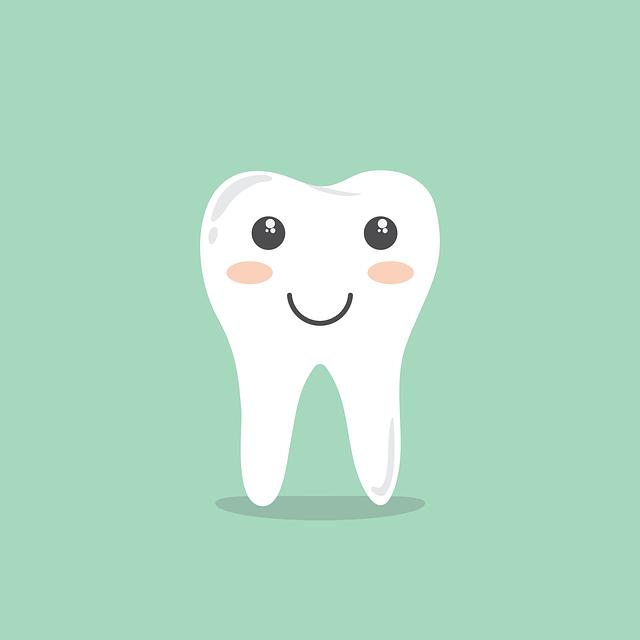Unlock the mysteries surrounding hypnosis and bruxism as we delve into the effectiveness of this intriguing therapy for teeth grinding.
1. Understanding Bruxism: Unraveling the Mystery Behind Teeth Grinding
Bruxism, commonly known as teeth grinding, has long perplexed both patients and researchers. This involuntary habit involves clenching and grinding of the teeth, often during sleep. Many people are unaware of this condition, which adds to the mystery behind its causes and effects.
While the exact cause of bruxism remains unclear, several factors can contribute to its development. Stress and anxiety are frequently associated with teeth grinding, as they often trigger muscle tension in the jaw. Additionally, certain medications, such as antidepressants, can increase the risk of bruxism. It is also believed that an abnormal bite or misaligned teeth can play a role in the grinding habit.
The consequences of bruxism can be significant and may lead to complications if left untreated. Chronic teeth grinding can damage tooth enamel, resulting in tooth sensitivity, chips, and fractures. Moreover, it can lead to jaw pain, headaches, and even temporomandibular joint disorder (TMJ). Identifying the underlying cause and seeking appropriate treatment from a dental professional is crucial to alleviate symptoms and prevent further oral health complications.
- Stress and anxiety are common triggers for bruxism
- Medications like antidepressants can contribute to teeth grinding
- An abnormal bite or misaligned teeth may increase the risk of bruxism
- Untreated bruxism can result in enamel damage, tooth sensitivity, and fractures
- Jaw pain, headaches, and TMJ can be consequences of chronic teeth grinding
Understanding the intricate details of bruxism is essential to combat this mysterious condition effectively. By recognizing the potential causes and consequences of this habit, individuals can seek appropriate treatment, alleviating discomfort and preserving long-term oral health.
2. The Science Behind Hypnosis: Exploring its Potential to Treat Bruxism
Hypnosis has long been a fascinating subject, with its potential in treating various conditions being actively explored. Bruxism, or teeth grinding, affects countless individuals and can lead to dental problems, headaches, and jaw pain. In recent years, researchers have looked into the science behind hypnosis and its effectiveness in treating this common issue. Here’s a closer look at the promising potential of hypnosis as a therapy for bruxism.
Hypnosis works by inducing a state of focused attention and increased suggestibility, allowing individuals to access their subconscious mind more readily. Through this process, hypnotherapists aim to reframe negative behaviors, such as teeth grinding, by introducing positive suggestions and promoting relaxation. The science behind hypnosis suggests that it may help address the underlying causes of bruxism, such as stress, anxiety, or unresolved psychological issues.
A growing body of evidence supports the use of hypnosis as a potential treatment for bruxism. Studies have shown that individuals who underwent hypnotherapy experienced significant reductions in teeth grinding and associated symptoms. In some cases, the effects of hypnosis were even comparable to traditional treatments, such as oral appliances. While more research is needed to fully understand the mechanisms at play, the science behind hypnosis offers hope for those seeking a non-invasive and drug-free approach to managing bruxism.
3. How Does Hypnosis Work for Bruxism? Unveiling the Mechanisms
There are several mechanisms through which hypnosis works to alleviate bruxism, commonly known as teeth grinding. These mechanisms include:
- Relaxation: Hypnosis induces a state of deep relaxation, calming the mind and body. By reducing stress and anxiety levels, it can help address the underlying triggers for bruxism.
- Increased awareness: Hypnosis can enhance self-awareness and mindfulness, allowing individuals to recognize the habit of teeth grinding and consciously interrupt the cycle.
- Suggestion therapy: Through hypnosis, therapists can provide positive suggestions that influence behavior, such as reducing grinding intensity, increasing jaw relaxation, or promoting better sleep habits.
- Addressing unconscious patterns: Bruxism can be rooted in unconscious habits or unresolved emotional issues. Hypnosis can access the subconscious mind to identify and address these underlying causes.
- Reprogramming responses: By guiding individuals during hypnosis, therapists can help reprogram automatic responses, replacing the habit of teeth grinding with healthier behaviors.
It is important to note that while hypnosis has shown promising results in managing bruxism, individual responses may vary. It is recommended to consult with a qualified hypnotherapist or healthcare professional to discuss the suitability and potential benefits of hypnosis for bruxism.
4. Unmasking the Benefits of Hypnotherapy for Bruxism Relief
Hypnotherapy is gaining recognition as an effective technique for alleviating the symptoms of bruxism. This non-invasive treatment option utilizes the power of the mind to bring relief to those suffering from teeth grinding and jaw clenching. Here’s a closer look at the benefits of hypnotherapy for bruxism relief:
1. Stress Reduction: Bruxism is often triggered or exacerbated by stress and anxiety. Hypnotherapy can help identify and address the underlying causes of stress, enabling individuals to better manage their emotions. By promoting deep relaxation and mental calmness, hypnotherapy aids in reducing stress levels, which in turn can alleviate bruxism symptoms.
2. Behavioral Modification: Hypnotherapy can target the behavioral patterns associated with bruxism, helping individuals develop healthier habits. Through suggestions and positive reinforcement, a skilled hypnotherapist can guide patients to replace teeth grinding with more desirable behaviors. This form of therapy empowers individuals to take control of their unconscious actions and break the bruxism cycle.
3. Pain Relief: Bruxism can lead to jaw pain, headaches, and even tooth damage. Hypnotherapy has been found to provide significant pain relief for bruxism sufferers. By accessing the subconscious mind, hypnotherapy can reduce muscle tension, relieve pain, and promote overall relaxation. This natural and drug-free approach offers a non-invasive solution to alleviate the discomfort caused by bruxism.
5. Exploring Real-Life Cases: Can Hypnosis Truly Help Manage Bruxism?
In this section, we will delve into real-life cases to investigate whether hypnosis can truly help manage bruxism. Through these cases, we aim to provide a deeper understanding of the effectiveness of hypnosis as a potential treatment for bruxism.
Case 1: Patient A
- Patient A, a 45-year-old individual, had been struggling with bruxism for several years.
- After unsuccessful attempts with conventional treatments, Patient A sought hypnotherapy as an alternative.
- Under the guidance of a certified hypnotherapist, Patient A underwent regular hypnosis sessions over a period of three months.
- During this time, the hypnotherapist used techniques to address the underlying causes of bruxism and to instill relaxation and stress-reduction strategies.
- After the treatment, Patient A reported a significant reduction in grinding episodes and an overall improvement in sleep quality.
Case 2: Patient B
- Patient B, a 32-year-old individual, had been experiencing severe bruxism-related symptoms, including jaw pain and tooth sensitivity.
- After exploring various treatment options, Patient B decided to try hypnosis as a last resort.
- With the guidance of a skilled hypnotherapist, Patient B underwent a series of hypnosis sessions that focused on reprogramming the subconscious mind to reduce stress and tension.
- After several weeks of consistent hypnosis treatment, Patient B reported a noticeable decrease in jaw pain and an improvement in overall oral health.
- Hypnosis not only helped alleviate Patient B’s bruxism symptoms but also contributed to a sense of overall well-being.
These real-life cases highlight the potential benefits of hypnosis in managing bruxism. While results may vary from person to person, they provide promising evidence that hypnosis can be an effective modality in addressing this condition. It is important to consult with a qualified hypnotherapist and explore the individualized approach that suits your specific needs before pursuing this alternative therapy.
6. Debunking Myths: Separating Fact from Fiction on Hypnosis for Bruxism
When it comes to finding solutions for bruxism, the excessive grinding or clenching of teeth, there are numerous myths and misconceptions surrounding the effectiveness of hypnosis. In this section, we will debunk these common myths and set the record straight, separating fact from fiction.
Myth 1: Hypnosis is a form of mind control that can manipulate individuals.
This belief couldn’t be further from the truth. Hypnosis is not mind control, nor does it give a hypnotist the power to manipulate someone’s thoughts or actions against their will. Instead, hypnosis is a cooperative and collaborative process where the individual being hypnotized is an active participant. It utilizes relaxation techniques and focused attention to tap into the subconscious mind and promote positive changes.
Myth 2: Hypnosis can magically cure bruxism instantly.
While hypnosis can be a valuable tool in managing bruxism, it is not an instant fix. Like any therapeutic approach, it requires time, dedication, and ongoing practice. However, hypnosis can provide individuals with empowering techniques to reduce stress, relax the muscles, and reprogram the subconscious mind over time, leading to long-term relief from bruxism.
Myth 3: Hypnosis is only effective for certain individuals.
Contrary to popular belief, hypnosis is a versatile therapy that can be effective for a wide range of individuals, including those suffering from bruxism. It is not limited to certain personality types or demographics. With the guidance of a trained hypnotist or through self-hypnosis techniques, anyone can harness the power of their subconscious mind to address the underlying causes of bruxism and find relief.
By addressing these common misconceptions, it becomes clear that hypnosis can be a valuable and effective approach in managing bruxism. Understanding the reality of hypnosis allows individuals to make informed decisions about its potential benefits in their journey towards relieving bruxism symptoms.
7. The Role of Hypnosis in Bruxism Management: A Comprehensive Approach
In the management of bruxism, a comprehensive approach that includes the use of hypnosis has shown promising results. Hypnosis, a therapeutic technique that induces a state of deep relaxation and focused attention, can be an effective tool in addressing the underlying factors contributing to bruxism.
Here are some key points to consider about the role of hypnosis in bruxism management:
- Addressing subconscious triggers: Hypnosis allows individuals to access their subconscious mind, which is where many of the triggers for bruxism may originate. By identifying and addressing these triggers through hypnosis, individuals can gain a better understanding of their bruxism and work towards finding appropriate solutions.
- Stress reduction: One of the common causes of bruxism is stress and anxiety. Hypnosis can help individuals manage stress levels and promote relaxation, reducing the likelihood of grinding or clenching their teeth.
- Replacing negative habits with positive ones: Through hypnosis, individuals can learn to replace their teeth grinding habit with more positive behaviors. They can develop healthier habits, such as deep breathing exercises or meditation, that promote relaxation and minimize the urge to grind or clench their teeth.
In conclusion, incorporating hypnosis into a comprehensive approach for bruxism management can be highly beneficial. By addressing subconscious triggers, reducing stress, and promoting positive habits, individuals can find relief from bruxism and improve their overall oral health.
8. Integrating Hypnotherapy into Your Bruxism Treatment Plan: What to Expect
When incorporating hypnotherapy as part of your bruxism treatment plan, you can expect a holistic approach that focuses on addressing the underlying causes of your teeth grinding and clenching. Hypnotherapy, which harnesses the power of your subconscious mind, can be an effective tool in managing bruxism symptoms and promoting long-term relief.
Here’s what you can expect when integrating hypnotherapy into your treatment plan:
- Initial assessment: Your hypnotherapist will conduct a thorough assessment to understand your personal history, symptoms, triggers, and goals. This information will help tailor the hypnotherapy sessions to your specific needs.
- Creating a relaxation routine: Hypnotherapy often involves teaching relaxation techniques such as deep breathing, visualization, and progressive muscle relaxation to help you achieve a state of calm and reduce stress – a common trigger for bruxism. These techniques can be practiced both during sessions and independently at home.
- Addressing subconscious patterns: With the help of your hypnotherapist, you will navigate your subconscious mind to identify any underlying factors contributing to your bruxism, such as anxiety, unresolved emotions, or negative thought patterns. By addressing these patterns, you can reframe your mindset and promote positive behavioral changes.
- Suggestions and positive reinforcement: During hypnosis sessions, your hypnotherapist will provide suggestions aimed at modifying your behavior, reducing stress, promoting relaxation, and cultivating healthy oral habits. These suggestions, when repeated over time, can reinforce positive changes and support your bruxism treatment.
- Regular follow-ups: Throughout your treatment, you will have regular follow-up sessions with your hypnotherapist to monitor your progress, address any concerns or challenges, and make any necessary adjustments to the hypnotherapy plan.
By integrating hypnotherapy into your bruxism treatment plan, you can experience a comprehensive approach that targets both the symptoms and underlying causes of teeth grinding and clenching. Remember, everyone’s experience with hypnotherapy is unique, and the number of sessions required may vary depending on individual factors. With dedication and a collaborative approach, hypnotherapy can be a valuable tool in managing bruxism and achieving lasting relief.
9. Success Stories: Witnessing the Power of Hypnosis for Bruxism Relief
Witnessing the Power of Hypnosis for Bruxism Relief has brought about incredible success stories that highlight the effectiveness of this holistic approach. Patients who have battled bruxism, the excessive grinding or clenching of teeth, have experienced life-changing results through hypnosis. Let’s explore some remarkable success stories that illustrate the transformative effects of this treatment.
Hypnosis has empowered individuals to overcome bruxism by addressing the underlying psychological and emotional factors that contribute to teeth grinding. By hypnotizing the mind, it helps reprogram the subconscious and break the harmful habit of clenching or grinding. The power of hypnosis lies in its ability to tap into the innermost thoughts and patterns, allowing individuals to regain control over their teeth grinding.
Here are a few success stories that demonstrate the positive impact of hypnosis for bruxism relief:
- Case 1: Sara, a long-time sufferer of bruxism, sought out hypnosis as a last resort. After just a few hypnosis sessions, she experienced a significant reduction in her teeth grinding. Through guided relaxation and imagery, hypnosis helped Sara uncover and address the stress and anxiety triggers that led to her bruxism. Consequently, she now enjoys peaceful nights of sleep, free from teeth clenching.
- Case 2: John had been suffering from bruxism for years, trying various treatments with minimal success. Skeptical at first, he decided to give hypnosis a chance. With the help of a skilled hypnotherapist, John learned to relax his mind and release the tension that manifested as teeth grinding. To his surprise, his bruxism gradually diminished, and he regained control over his oral health.
- Case 3: Emma, a habitual grinder with severe headaches and worn-down teeth, turned to hypnosis in desperation. Through hypnosis, she was able to manage her stress levels and confront the underlying emotional issues causing her bruxism. As a result, not only did her headaches disappear, but her dental health also improved significantly.
These success stories exemplify the potential that hypnosis holds for individuals seeking relief from bruxism. By addressing the mind-body connection and tapping into the subconscious, hypnosis offers a powerful and natural approach to alleviate the symptoms of teeth grinding.
10. Expert Insights: The Future of Hypnosis in Bruxism Treatment
In recent years, the use of hypnosis in bruxism treatment has gained significant attention from experts in the field. With its unique ability to tap into the subconscious mind, hypnosis offers a promising future for individuals suffering from this common dental condition. Here are some expert insights on its potential:
1. Relaxation and stress reduction: One of the key benefits of hypnosis in bruxism treatment is its ability to induce deep relaxation and reduce stress. By guiding patients into a state of deep relaxation, hypnosis can help break the cycle of unconscious teeth grinding and clenching, which is often triggered by stress and anxiety.
2. Behavior modification: Hypnosis also has the potential to modify the underlying behaviors associated with bruxism. Through repetitive suggestions and imagery, a skilled hypnotist can help reprogram the mind and create new patterns of behavior that discourage teeth grinding and promote healthy oral habits.
3. Addressing root causes: Unlike traditional treatments that focus solely on managing the symptoms, hypnosis aims to identify and address the root causes of bruxism. By delving into the subconscious mind, hypnosis can help uncover any underlying emotional or psychological factors contributing to the condition, allowing for a more comprehensive and effective treatment approach.
As research on hypnosis and its applications in bruxism treatment continues to evolve, experts are optimistic about its potential as a non-invasive, drug-free, and long-lasting solution for those dealing with this debilitating dental condition.
In conclusion, hypnosis has shown promise as a potential treatment for bruxism. Research suggests that it can help alleviate symptoms and provide long-term relief. However, more studies are needed to fully understand its effectiveness. If you’re considering hypnosis for bruxism, consult a qualified professional to explore this avenue further.



